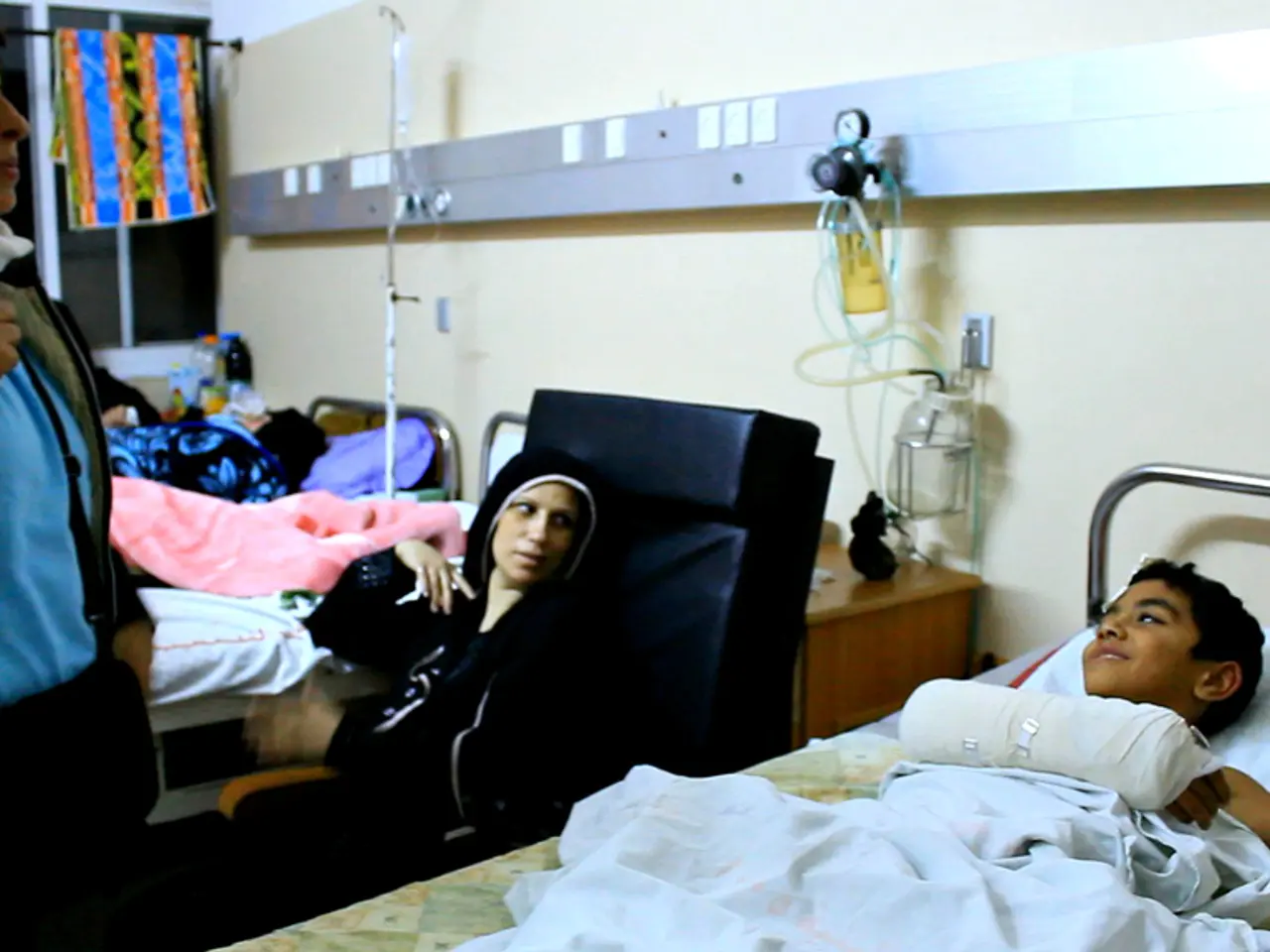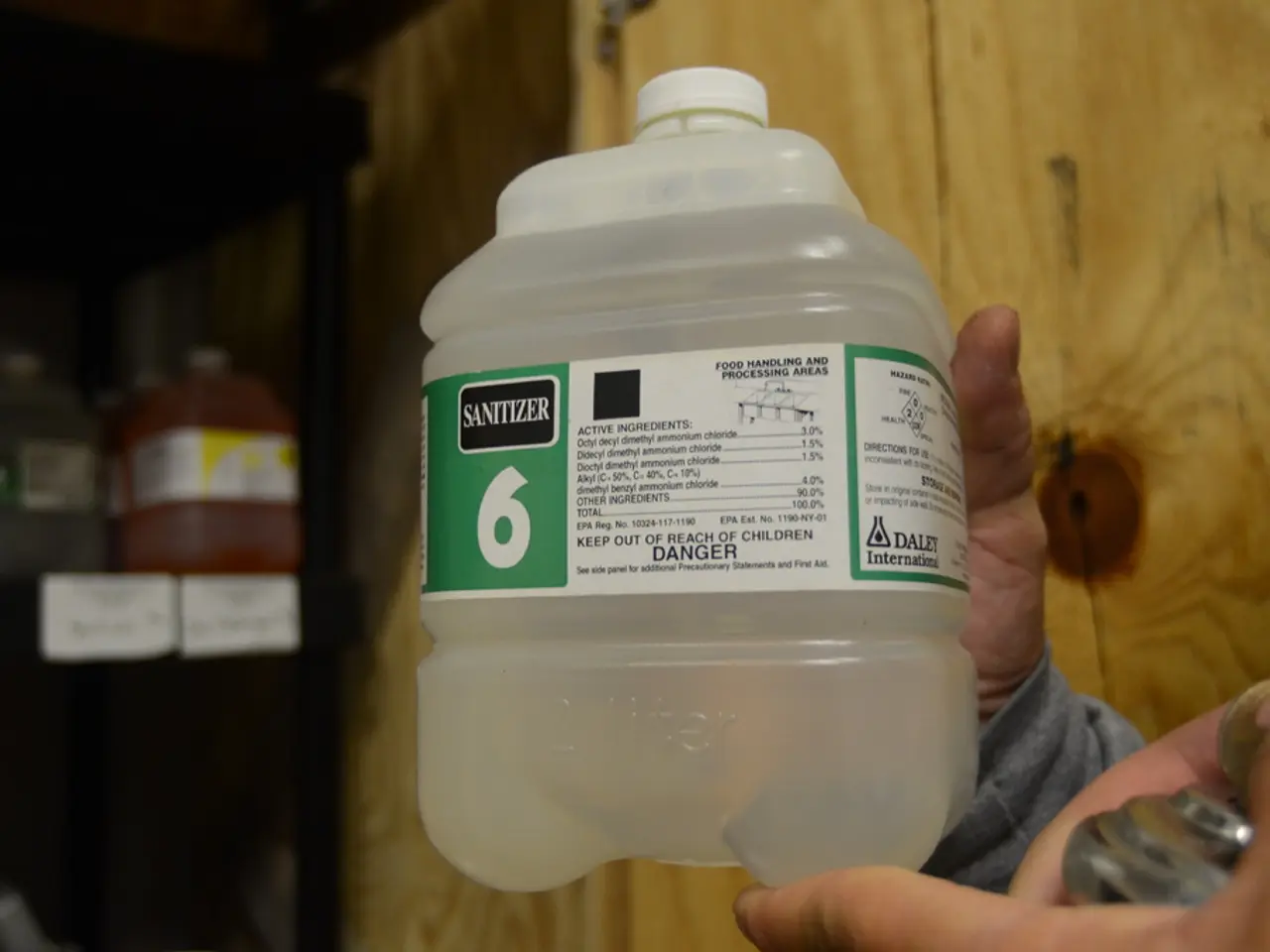Allergic reaction sparks breakthrough potentially saving the NHS £1 billion
In a groundbreaking development, a new monitoring system designed by 23-year-old Zaki Razak, a student at Nottingham Trent University (NTU), could potentially save the National Health Service (NHS) in England up to 1 billion GBP annually.
The innovative design replaces the standard two trolleys used in hospitals with a single, compact, and adjustable trolley for reading patient vital signs. This streamlined system is made from moulded Acrylonitrile Butadiene Styrene (ABS) plastic and features a tablet computer as the single point of recording all data.
The tablet is magnetized to a docking station and connected wirelessly to all devices via Bluetooth, making taking readings more efficient without the need to move the trolley repeatedly. The trolley's bottom also has a wireless power bank that recharges when parked in its charging dock, promoting organization.
James Dale, Head of Product Design at NTU, has praised the design, stating it could significantly improve the efficiency of the NHS. The design is currently on public display until 12 June for the 2025 NTU Student Showcase, one of the largest exhibitions of graduating art and design talent in the UK.
The idea for the new system came to Zaki Razak after he witnessed nurses working with outdated systems to record a patient's heart rate, blood pressure, oxygen levels, and temperature during his hospital stay for a severe allergic reaction.
Implementing more efficient basic monitoring equipment in the NHS could significantly improve nursing efficiency and yield substantial cost savings. Advanced monitoring equipment can provide real-time data, reducing the need for manual checks and paperwork, and minimizing human error in monitoring.
By streamlining tasks, the NHS might need fewer staff to manage basic monitoring, potentially reducing labor costs. Modern devices often require less maintenance, which could lead to cost savings on repair and replacement. Time saved by nurses could be allocated to other critical tasks, maximizing resource utilization without additional hiring.
While specific figures are difficult to estimate without detailed data, consider the following: reducing manual monitoring tasks could save a significant portion of nurses' time, potentially translating into tens of millions of pounds annually if just a fraction of their workload is shifted. Modern, efficient equipment might reduce maintenance and replacement costs, though initial investment could be high.
Nottingham Trent University, through its involvement in initiatives like Digital4Health UK, could play a crucial role in developing and integrating digital health technologies that enhance monitoring efficiency in the NHS. This collaboration could lead to more effective health tech solutions being implemented across hospitals, further enhancing efficiency and cost savings.
Zaki's research indicates that each nurse could save approximately 11 hours per month due to the efficiency of the new system. The design is also compact, adjustable for people of different heights, and features a top surface that can be turned into a tray and be rotated.
Written notes can be photographed and viewed on the tablet to reduce the need for pieces of paper, making the system more digital and potentially reducing errors caused by bad handwriting. The modular design allows for ease of cleaning, customisability, and maintenance.
Zaki's design is highlighted as an example of how thoughtful design and updated equipment can have a major impact on the NHS. The estimated annual savings for the NHS in England, based on these time savings and average nurse salaries, is around 982 million GBP.
The digital health innovation designed by Zaki Razak, currently on display at Nottingham Trent University Student Showcase, could significantly contribute to the health-and-wellness sector by leveraging technology for more efficient patient monitoring. This system, which integrates science with modern design, replaces traditional trolleys in hospitals with a compact, adjustable trolley equipped with a tablet computer for recording patient vital signs. This not only improves nursing efficiency but also leads to potential cost savings for the National Health Service (NHS), amounting to approximately 982 million GBP annually.




